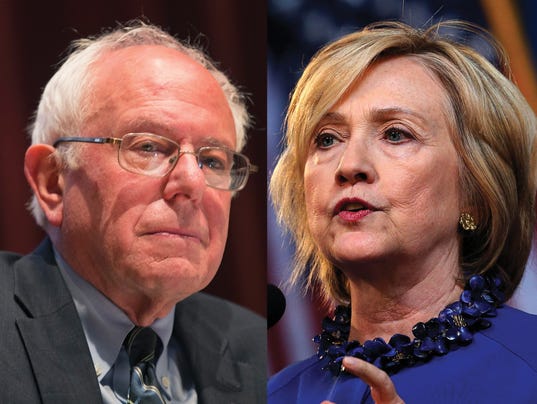To my fellow labor activists:
I have taken leave for the past several months to sort of take stock of the current state of the labor movement, as well as my feelings about where we are now, where I think the movement is being steered by those in charge, and what I think we should be doing to rebuild the rank and file movement that defined labor at its strongest point so many years ago. This being May 1st, The international Workers' Day, it seemed appropriate to write this letter.
Last July, when I made my last post to this blog, I was covering the backlash from members that the American Federation of Teachers(AFT) was receiving due to their endorsement of Hillary Clinton over Bernie Sanders. I was not very surprised by the executive board of AFT endorsing Clinton, who has been very closely linked to Randi Weingarten, AFT's president. I was, however, surprised that when the uproar became much louder than they had anticipated, they tried to claim that they had polled their membership, which overwhelmingly chose Clinton. Anyone who has worked in the labor movement knows that to be a patently false statement. Just about every major union follows the same pattern, which I explained in detail in that post, which can be read
here.
Soon, the Machinists, SEIU, AFSCME, AFGE, and several other unions all endorsed Clinton long before the primary season even commenced. There were, of course, exceptions. The Communication Workers of America, as well as National Nurses United and the American Postal Workers Union all endorsed Sanders. I found it striking that the unions that backed Sanders all allowed membership votes, while those backing Clinton primarily relied on the National Executive Councils of their respective organizations to make the decision.
All of this really made me step back and do some hard thinking about why, when faced with a decision between a candidate who had backed the labor movement on a fundamental level against corporate greed for 40 years, and one who backed the broader ideas of unions, but also backed large corporations and took a labor management approach, they would choose the latter. The answer became very clear to me: This primary would highlight the ever growing chasm between the class struggle being waged by the rank and file members and labor activists, and the lobbying organizations into which the labor elite have turned these institutions.
So Where Are We Now?
When I accepted a job with SEIU in 2011, I had been a shop steward and labor activist for several years. I had pursued a job with several labor organizations, and was excited to finally be a paid staffer with a labor union. What I discovered was a completely different world than I had imagined, and not just within SEIU. From my interaction with other staffers at various other unions, it was obvious that there were a ton of similarities. As I have written about extensively on this blog, there has been a trend over the last 15 years of unions, particularly at the national and regional level, to hire recent college graduates as staffers. While the students are typically progressive, they often do not have any experience as union members. This has exacerbated the disconnect between rank and file members in the shop, and their leadership. I feel we rapidly approaching a crossroads where this must be rectified, or else we face the prospect of a fractured labor community.
Where Are They Taking Us?
In my opinion, the major shift from labor movement to lobbying effort was kicked into high gear by Andy Stern. It was never a secret that Stern desired to be a player in DC, so much so that he was willing to fracture the AFL-CIO to do it. Change to Win was patched together largely by the cult of personality leadership of Stern and Hoffa(honorable mention to Doug McCarron). The leadership of the large labor organizations are largely involved much more in political lobbying than they are with the day to day struggles of the rank and file. The fact that nearly ever major union, with the exception of the Steelworkers and a few others, have their headquarters within walking distance of Capitol Hill is very telling. I think we owe it to ourselves to ask if we want our unions to continue to be lobbying organizations that focus primarily on attempting to further our cause through using our resources to affect legislative changes, or if we are resolved to return the labor movement to its direct action roots when we didn't trust politicians to do our bidding.
What Is To Be Done?
For my part, I will always prefer direct action to lobbying. This has a lot to do with the fact that I studied political science in college and was a member of a union(AFGE) that depended on legislative action for a lot of their collective bargaining terms. For public sector unions, lobbying makes a lot more sense due to what I just mentioned. However, in the private sector, I believe we need to reaffirm our commitment to the direct action roots of our labor founding fathers(and mothers).
I implore every labor activist out there to do some volunteer organizing for your local IWW branch. I really believe that the Wobbly approach is still the best approach. Rebuilding the IWW would go a really long way to revitalizing the labor movement at large. If you agree with anything you read, please evaluate your feelings about the direction of our movement, and resolve to do whatever we have to do to get things back on track. Where are the Mother Joneses and the Joe Hills of this generation? If it isn't us, who will it be?
In Solidarity,
Joseph




